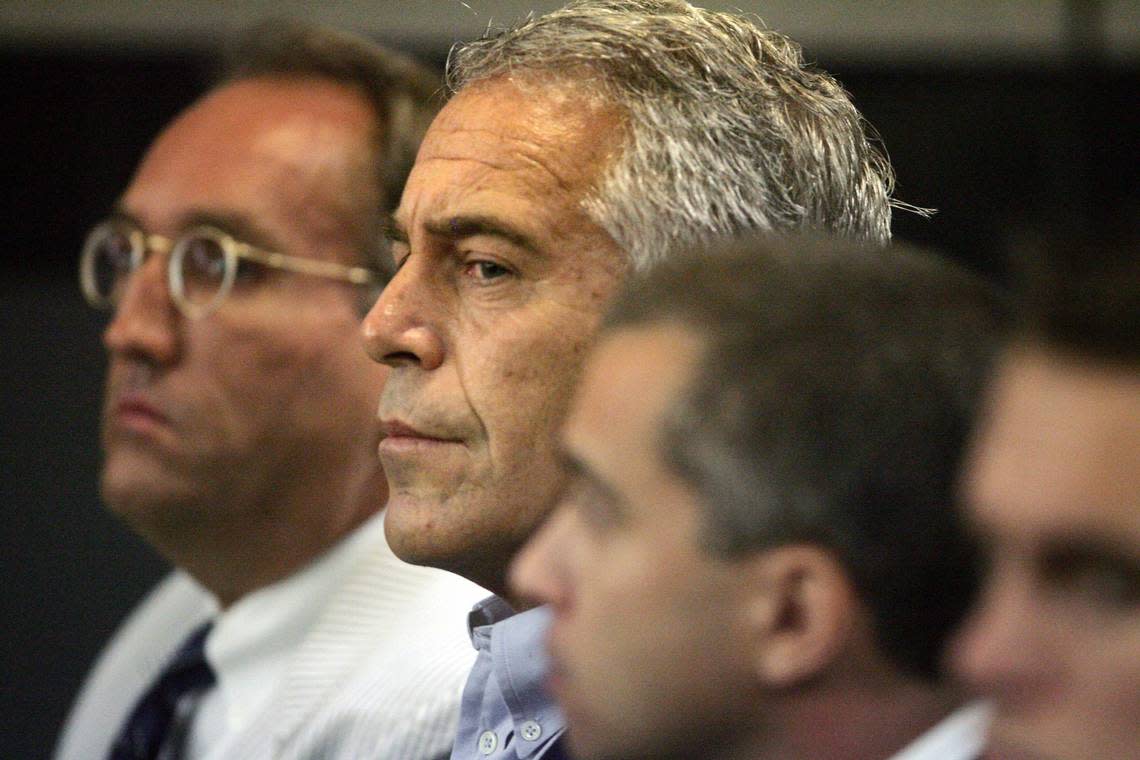Bill seeking to reveal confidential Epstein grand jury records heads to DeSantis’ desk

Gov. Ron DeSantis plans to sign legislation that aims to reveal the evidence and testimony presented almost two decades ago to the South Florida grand jury that charged sex trafficker Jeffrey Epstein with just one felony count of soliciting a prostitute.
On Wednesday, the Florida Senate unanimously passed Senate Bill 234, a companion to a bill that already passed in the House. Shortly after, DeSantis announced on the social media platform X that he “will sign the bill into law.”
“All files related to Jeffrey Epstein’s criminal activity should be made public. While the federal government continues to stonewall accountability, I’m glad the Legislature has taken action to release the grand jury material from the Florida state case,” wrote DeSantis in his post on X.
With DeSantis’ signature, SB 234 and HB 117 would change the current state law that keeps most grand jury proceedings a secret. Lawmakers are hoping that it will persuade a Palm Beach County judge to publicly release evidence and testimony presented to the grand jury that in 2006 weighed evidence that Epstein had lured teenage girls to his Palm Beach mansion and sexually abused them.
The effort comes as Judge Luis Delgado — overseeing a lawsuit brought against the Palm Beach County Clerk’s Office by the Palm Beach Post — sorts through records to determine which of them, if any, can be made public.
“The public and the victims deserve to know if prosecutors steered the jury away from indicting Epstein on more severe charges,” Sen. Tina Polsky, a Boca Raton Democrat and sponsor of SB 234, said during the Senate session on Wednesday. “There is also a compelling public need to know if this system worked or failed.”
Rep. Peggy Gossett-Seidman, R-Highland Beach, sponsored the bill that passed the House.
READ the Miami Herald series Perversion of Justice
In a judge’s hands
The grand jury proceedings in Palm Beach County represent the start of how the politically-connected Epstein sex-trafficked young girls while using money and connections to shield himself from meaningful criminal liability for years.
Critics of the early prosecution of Epstein question whether the state attorney at the time in Palm Beach County, Barry Krischer, soft-pedaled the case when he chose to present evidence to a grand jury rather than charge Epstein himself. The outcome so dissatisfied the Palm Beach police chief that he brought the case to the FBI.
Under an agreement with the U.S. Attorney in South Florida, Epstein was allowed to take a plea deal that ultimately sent him to jail for 13 months — much of which he spent in his West Palm Beach office through a work-release program. Years later, following the Miami Herald’s Perversion of Justice series, which detailed lax efforts to hold Epstein to account and the stories of the girls lured into his orbit, federal prosecutors in Manhattan charged him with sex trafficking minors.
He was found dead by hanging in his jail cell a month later. His death was ruled a suicide. His former girlfriend, Ghislaine Maxwell, was found guilty on various charges, including the sex-trafficking of a minor, and in 2022 she was sentenced to 20 years in prison.
The legislation seeks to encourage the release of the 2006 grand jury evidence and testimony by expanding the circumstances under which such records can be made public. The proposed changes — narrowly tailored to apply only to Epstein’s case — would ease confidentiality in cases where the subject of the grand jury inquiry is deceased, the inquiry is related to criminal or sexual activity with a person who was a minor at the time, and the testimony was previously disclosed by a court order.
The legislation argues that all those circumstances should be considered when a judge is determining whether disclosure of grand jury records would be in the interest of “furthering justice.”
Attorney Spencer Kuvin, who represented a handful of Epstein’s victims, is hoping that if the legislation becomes law it will “short circuit the current review of the grand jury proceedings by the Court.”
“On behalf of the victims of Jeffrey Epstein that I represented, we are glad that the full account of what occurred can now be made public for the world to see exactly how the State Attorney’s office dropped the ball in the prosecution of one of the world’s most notorious sexual predators,” said Kuvin in a written statement to the Miami Herald. “We eagerly await this bill’s signature by the Governor so that we can now get to see these proceedings.”
Herald/Times Tallahassee Bureau staff writer Ana Ceballos contributed to this report.


